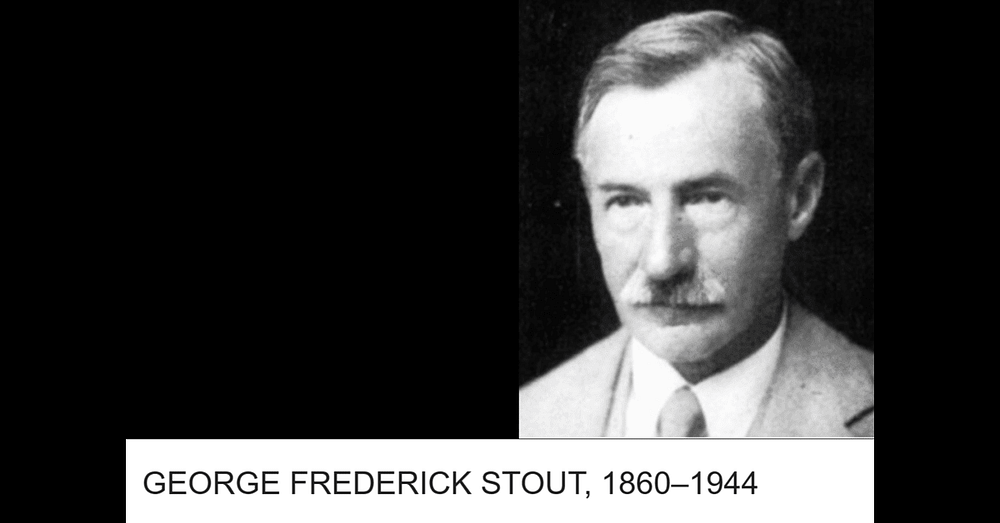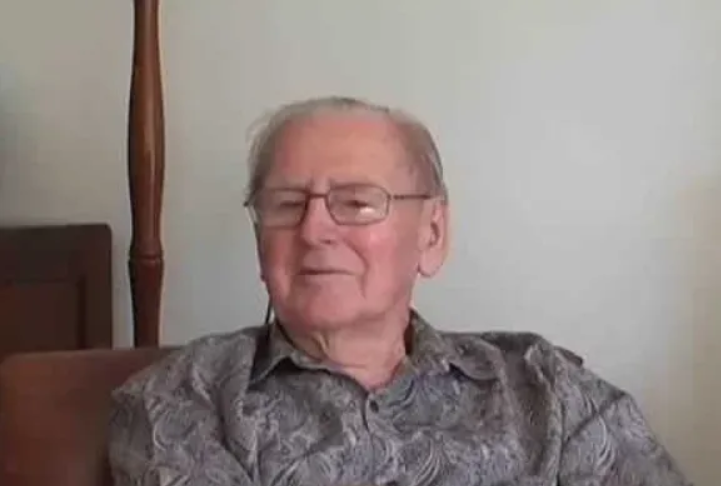
George Frederick Stout (1860–1944) was an English philosopher and psychologist.
The Australian philosopher John Passmore expressed Stout’s main concern in this way:
“That matter could never produce anything so different from itself as mind.”
Stout’s position (of 1931) on the mind-body problem wasn’t Cartesian. In fact it’s fairly contemporary in its general tone.
Stout argued that the mind is “embodied mind”, not the “pure spirit” of mind-body dualism. As one other commentator put it:
“Stout [] held that mind and body are always implicated with one another in two basic ways. First of all, minds are embodied; they are never to be found on their own.”
In terms of panpsychism, Stout himself argued that
“every material object [] must be infused by mind, even though it is not itself a mind”.
Clearly Stout didn’t believe that all material objects can think. Indeed, the infusing of objects with mind may still mean that certain objects have no cognitive properties (or abilities) whatsoever. However, such objects may still instantiate phenomenal properties (or protophenomenal properties), which is a very different claim.
Stout also believed that there’s only one substance. In most cases, that substance isn’t complex enough to cause (or bring about) any forms of cognition. However, when complex enough (as in animal brains) it does have the ability to bring about cognition.
Stout argued that the prime reason for his monist stance is that only with this position can
“the distinctness of mind and matter be reconciled with their continuity”.
So we have two very different aspects of the mind-matter relation: their (obvious) distinctness, as well as their (less obvious) continuity. Indeed, their distinctness can also be explained by their ontological continuity, and not by, for example, the mental’s strong emergence.
The notion of emergence itself is, Stout argued, miraculous, and it doesn’t explain anything about the matter-mind relation. And Cartesian dualism, on the other hand, can’t explain the interaction of the mind and the brain/body (among other things).
In 1970, the Australian philosopher Keith Campbell also stressed continuity.

Even though Keith Campbell didn’t begin with the word “panpsychism”, the following passage expresses the broad gist of what’s been called the “Continuity-Argument for Panpsychism”. Campbell wrote:
“If minds are spirits they must have arrived as quite novel objects in the universe, some time between then and now [man and his remote descendants]. But when? We see only a smooth development in the fossil record. Any choice of time as the moment at which spirit first emerged seems hopelessly arbitrary.”
[See note 2 for the source. Interestingly, idealists can also adopt a version of this argument.]
The passage above seems like an argument that a panpsychist would be happy with.
Of course, it’s usually stated that consciousness didn’t just “arrive[]”. It slowly occurred during a very gradual process — a result of many evolutionary changes, as well as the increased complexity of brains and central nervous systems (among many other things). [See my ‘Panpsychism in 1970: Keith Campbell on the Continuity Argument for Panpsychism’ for more on Campbell’s position.]
Finally, philosophers to this very day are still grappling with the mind-body problem. They overwhelmingly reject Cartesian dualism. Many other philosophers also reject the various kinds of emergence theory (at least in the philosophy of mind). The latter positions are sometimes seen as being little better (i.e., in terms of their explanatory power) than Cartesian dualism.
Notes
(1) Most of the work that G.F. Stout did on this issue can be found in his book Mind & Matter, which was published in 1931.
(2) This passage is from Keith Campbell’s chapter ‘Dualisms’, from his 1970 book, Body and Mind. This chapter includes a (relatively) early reference to panpsychism by an analytic philosopher. In other words, it occurred some time before the recent (renewed?) interest in panpsychism, dating back to the mid-1990s/early 2000s. [See my ‘The Recent Rise of Analytic Panpsychism: 1996 to 2022’.]









No comments:
Post a Comment